Sylvania LED Lamps E27 Dimmable
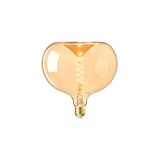
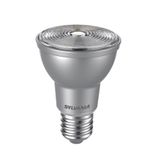
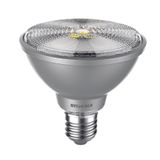
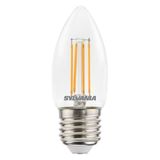
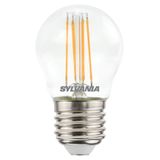
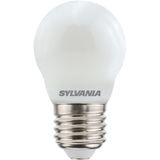
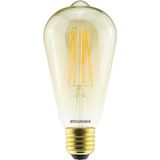
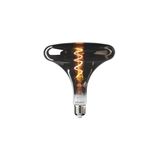
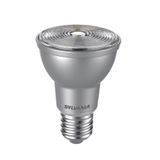
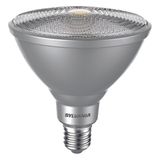
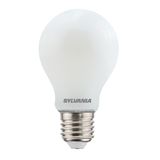
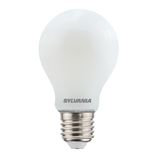
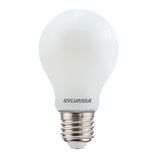
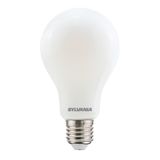
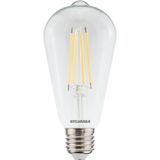
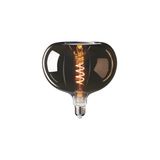
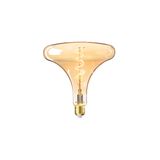
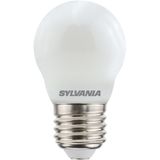
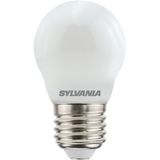
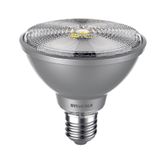
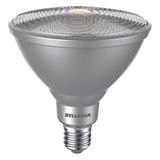
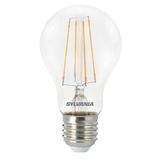
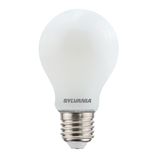
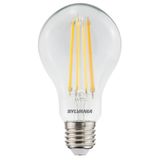
Ceiling shades, corridor domes, and task heads still carry E27 sockets across housing, hospitality, and light-commercial floors. The portfolio here focuses on quiet dimming curves, honest inrush data for Type B/C MCBs, and consistent colour (≤3-step SDCM) so phases read the same across a site. For projects migrating room by room, these lamps keep optics and bezels untouched while hitting kWh targets.
sylvania e27 dimmable led lamps range and project context
Drivers are tuned for 220–240 V AC, 50/60 Hz with PF ≥0.9 (model dependent), THD ≤15 %, and surge typically 1–2 kV L-N. Output classes span ~470–1600 lm; CRI 80 standard with CRI 90 options; CCT 2700/3000/3500/4000 K. When schedules fix envelope sizes and lumen bands per room type, sylvania e27 dimmable led lamps keep commissioning predictable without editing cut-outs or shades.
sylvania e27 dimmable bulbs photometrics and dimming behavior
Opal A-shape and globe envelopes give uniform shade fill; low-glare crowns protect high angles in open fittings. Recommended practice: trailing-edge dimmers on validated lists, low-level scenes at 10–20 %, Pst LM < 1.0 and SVM < 0.9 at maintained levels. In camera-heavy spaces, designers specify sylvania e27 dimmable bulbs to avoid stepping and shimmer at low scenes.
sylvania screw base dimmable lights installation and compatibility
Caps follow IEC 60061; holders and collars should be checked for spring force and heat ageing. Terminals in quality lampholders accept 0.5…2.5 mm² copper; keep earth continuity in metal shades. Where legacy phase dimmers remain, minimum-load constraints are recorded at circuit level so sylvania screw base dimmable lights behave consistently across floors.
sylvania dimmable retrofit e27 lamps controls and interfaces
Scene engines upstream (DALI-2/1–10 V) can drive contactor-fed circuits where sockets must stay; the lamps then run at fixed mains while the driver sets level. Emergency stays upstream of dimming. Facilities standardise sylvania dimmable retrofit e27 lamps by lumen class, CCT/CRI, and dimmer matrix to stabilise replacements during phased works.
Technical specifications and standards
- Electrical: 220–240 V AC; PF ≥0.9 typical; THD ≤15 %; declared inrush for MCB sizing; surge 1–2 kV L-N.
- Photometric: 2700/3000/3500/4000 K; CRI 80/90; ≤3-step SDCM; efficacy ~105–140 lm/W.
- Thermal/operating: −20…+40/50 °C (model dependent); short-neck options for enclosed domes.
- Flicker: targets Pst LM < 1.0, SVM < 0.9 when paired with validated dimmers.
- Compliance: IEC 62560/EN 62560 (self-ballasted), EN 61347 (driver safety), EN 55015 (emissions), EN 61000-3-2 (harmonics), EN 62471 (photobiological).
Applications and compatibility
Offices and classrooms use neutral whites with UGR managed by the luminaire; hotels and apartments prefer warm 2700–3000 K with CRI 90 in guest areas; stair cores keep egress scenes at 10–20 %. For housing stock, publish a dimmer matrix and holder replacement policy to eliminate intermittent flicker.
Integration with other Sylvania systems
Tie room logic to Sylvania automatics and control so presence/daylight scenes sit upstream of the sockets. Keep CCT/CRI aligned with Sylvania panels and linears in adjacent zones to prevent colour seams at thresholds. Where wireless is permitted, sylvania smart dimmable bulbs can join local scenes without altering the feeder—document provisioning and fallback modes.
Selection criteria for B2B clients
- Fix target lux and vertical illuminance by room; select lumen class and optic (A-shape/globe).
- Lock CCT/CRI by zone; keep ≤3-step SDCM across phases.
- Decide control: validated trailing-edge dimmers vs upstream DALI-2/1–10 V with fixed sockets
- Record inrush, PF at dim, and surge per SKU against feeder MCB curves.
- Confirm envelope/neck for enclosed domes; log approved accessories and shade clearances.
Procurement and kitting
Room bundles should include lamps, spare holders, label frames, and dimmer stickers stating minimum loads. For consumer-grade spaces on the same estate, note where sylvania household e27 dimmable bulbs are acceptable and keep them segregated from pro SKUs to avoid mix-ups at service.
Advantages of working with Bankoflamps
Pricing is aligned to room schedules and you see live EU stock before crews are booked. Quotes land in about an hour with EAN/MPN so variants stay locked. The portal shows lead times, shipment status, and downloadable price lists with planning-grade validity windows. Approved accounts can use post-payment up to 30 days. We consolidate partials to cut freight, and your account manager cross-checks envelope size, lumen/CCT, dimmer type, inrush/surge data, and holder condition against your drawings so cartons arrive site-ready across France, the Baltics, Germany, Spain, Italy, Belgium, and the Netherlands.
Keyword placement (each exactly twice):
- sylvania e27 dimmable led lamps — heading + body.
- sylvania e27 dimmable bulbs — heading + body.
- sylvania screw base dimmable lights — heading + body.
- sylvania dimmable retrofit e27 lamps — heading + body.
- sylvania smart dimmable bulbs — body twice (integration paragraph + closing note below).
- sylvania adjustable brightness led lamps — body twice (use when specifying scene ranges and procurement notes).
- sylvania household e27 dimmable bulbs — body twice (procurement paragraph + note below).